The development of a child's abilities is one of the main tasks of parents and teachers. In today's world, more and more children are showing interest in programming, computer technology and the IT industry in general.
Coddy Children's Programming School offers its vision and experience on what skills a child should develop in order to successfully integrate into today's world and succeed in their careers.
1. Logical thinking
Logical thinking is the ability to analyze information, recognize patterns, and make decisions based on logic. Developing logical thinking helps your child solve problems and find unconventional solutions.
How to evolve:
The development of logical thinking in a child can be achieved in several ways. Some of them are:
Solving puzzles and quizzes
Puzzles and riddles are a great way to develop a child's logical thinking. They help to learn to analyze information, find patterns, and solve problems based on logic. There are many books and apps with puzzles and quizzes for children that can be used to develop logical thinking.
Logic games
Logic games are another great way to develop a child's logical thinking. They help you learn to find unconventional solutions and make decisions based on logic. There are many different logic games, from board games to computer games, that can be used to develop this skill in a child.
Working with Constructors
Working with constructors helps with learning to analyze information, find patterns, and solve problems based on logic. Working with constructors also helps to develop a child's creativity and promotes the development of motor skills.
Teach programming
Programming is a great way to develop a child's logical thinking. It teaches them to analyze information, recognize patterns, and make decisions based on logic. Learning to program is also a great way to develop your child's creativity and math skills.
Coddy offers programming courses to help develop a child's logical thinking. The courses are aimed at learning programming languages, creating games and mobile applications. This is a great way to develop logical thinking and gain valuable experience for future professional activities.
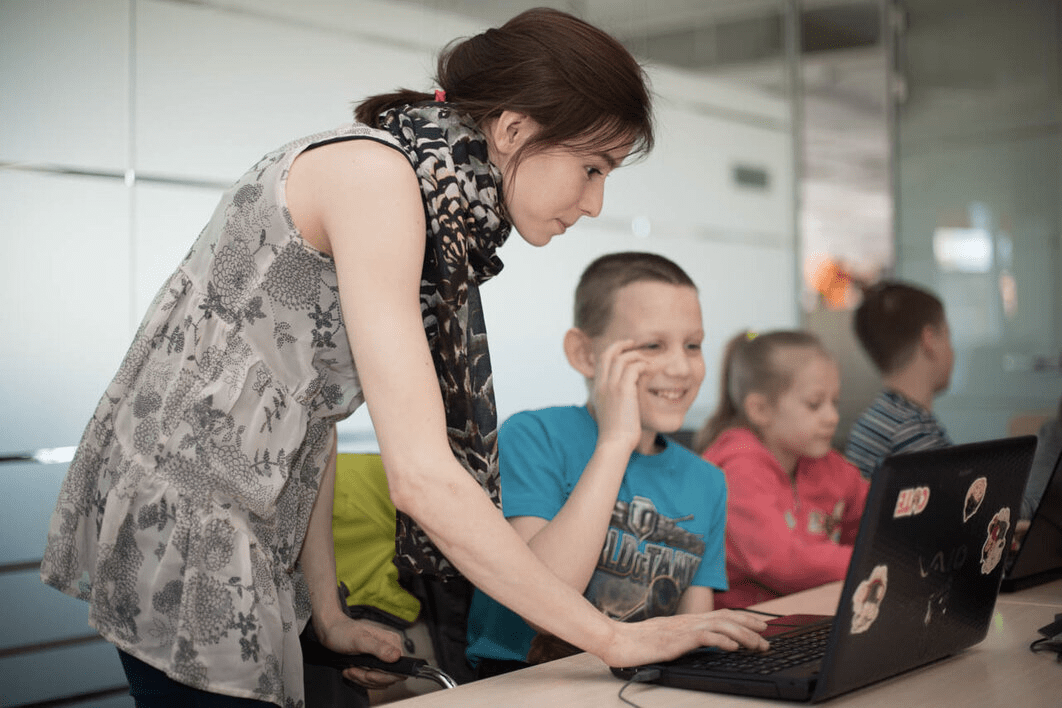
2. Creativity
Creativity is the ability to create something new and original. Developing this skill is important not only for creative professions, but also for business, scientific research, and many other fields.
Developing a child's creativity is an important aspect of their education and upbringing. Some of the ways that contribute to the development of creativity in children:
Study of art and music
The study of art and music helps to expand the mind and develop creativity. Visiting exhibitions, museums and concerts, and taking music and art classes help children see the world through different eyes and be inspired to create their own.
The development of the imagination
Children who read a lot and play imaginative games usually have a better imagination and the ability to create something new and original. In addition, there are many books and exercises that can be used to develop the imagination.
Work with your hands
This is another great way to encourage a child's creativity. It helps develop motor skills and creativity and encourages scientific exploration and experimentation. Working with different materials like clay, cardboard, and paper helps children come up with new ideas and create something original.
Learning to program
Programming helps children learn how to create something new and original, and it also helps develop math skills and abstract thinking. Programming courses, such as those offered by Coddy, are a great way to encourage creativity in children.
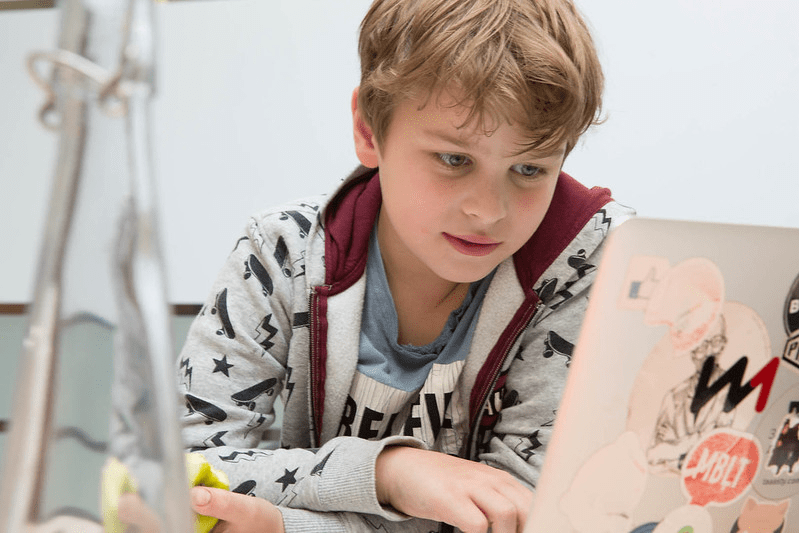
3. Communicativity
Communicative skills are the ability to communicate with people, establish a dialog, and find a common language. Developing this skill will help your child succeed not only in professional activities, but also in his or her personal life.
Communicative skills are one of the key skills necessary for a child's successful adaptation to society and for his or her career advancement in the future. Well-developed communication skills enable a child to quickly establish contacts, find common interests with other people, effectively solve problems in a team and convince others of his/her point of view.
How to develop communication skills in a child:
Communication within the family. The easiest and most natural way to develop your child's communication skills is through communication within the family. Parents should be careful to talk to the child, ask questions, and show interest in the child's opinions and successes. It is important that communication be open and trusting so that the child feels supported and understood.
Communicative games. Various games that promote communication skills can be very effective in developing a child's communication skills. For example, role-playing games in which the child takes on different roles and learns to communicate with other characters.
Participation in joint activities. The child should participate in various activities inside and outside of school where he or she can communicate with other children and adults. These may be sports competitions, creative competitions, or social events.
4. Ability to work in a team
Teamwork is the ability to work effectively with others, sharing ideas and distributing tasks. Developing this skill is necessary for teamwork among developers, designers, project managers, and many other professions.
There are several ways to develop a child's teamwork skills:
Games and tasks that require collaboration and joint problem solving can also help develop team skills. A child may be asked to solve a difficult puzzle or problem together with friends or family.
Collaborative projects: Participating in collaborative projects, such as writing a book, making a video, or developing a game, can also help develop teamwork skills. When working on a project, children learn to share ideas, evaluate the opinions of others, and find common solutions.
Hobby and sports activities such as music groups or team sports can also help develop teamwork skills. In this case, children learn to cooperate with other team members, make decisions, and solve problems together.
Communication: regular communication with peers and adults can also help develop teamwork skills. Children learn to listen to others, express their thoughts, and accept the opinions of others.
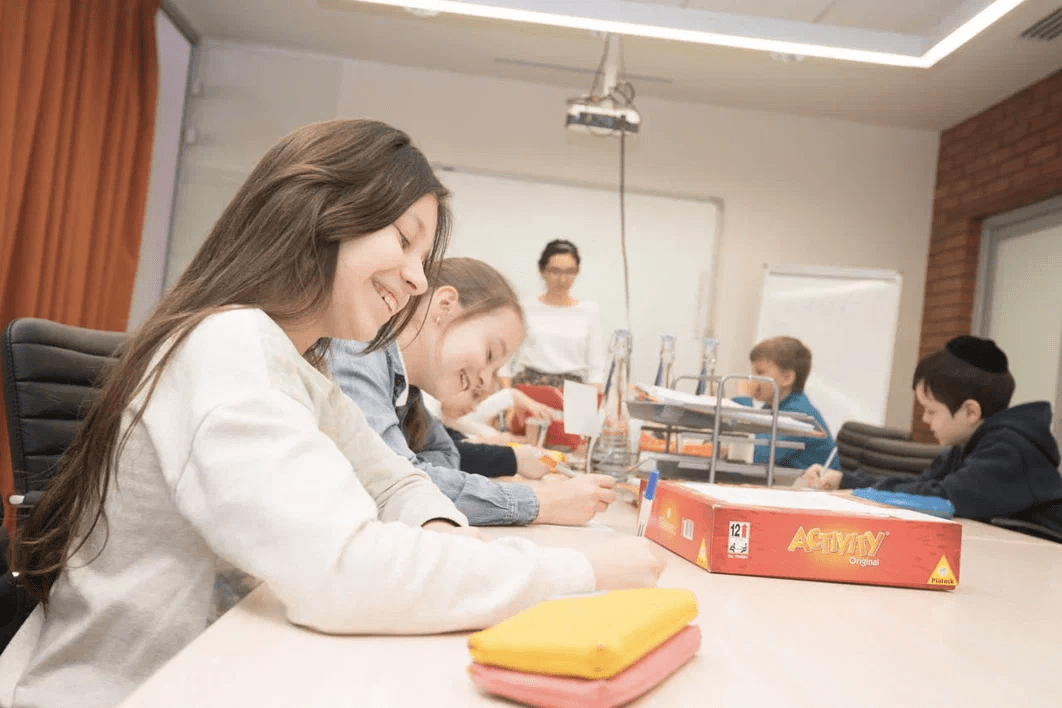
5. Critical thinking
Critical thinking is the ability to analyze information, judgments, and ideas and to distinguish what is essential and reject what is inferior. Developing this skill helps your child make informed decisions and distinguish truth from lies.
Critical thinking also helps your child form his or her own arguments and opinions.
The following activities can be recommended to develop this skill in a child:
Teaching logical thinking: As mentioned earlier, developing logical thinking is an important component of critical thinking. Games and tasks that require a child to analyze and solve problems can be used for this purpose. For example, logic tasks, puzzles, and games such as chess or Go.
Teaching text analysis: A child can be asked to analyze text and highlight important details, key facts, arguments, and assess the credibility of information. This can be done both in the classroom and at home by providing the child with various materials such as articles, news stories, and research reports.
Developing critical judgment: the child should learn to evaluate information in terms of its objectivity and credibility. This will help him/her to distinguish facts from opinions and to analyze and compare different sources of information. Different materials and situations can be used for this purpose, such as looking at advertisements or discussing the news.
Learning to formulate his or her own arguments: A child should learn to formulate his or her own arguments and opinions based on analysis of information. This can be done, for example, through discussions or debates on various topics where the child is forced to argue and defend his or her point of view.
Encourage curiosity and interest in knowledge: The child should be interested in learning new information and expanding his knowledge. Support his curiosity, ask questions and let him explore the world around him.
Coddy offers social media content creation courses that teach kids the basics of copywriting, design, and marketing, and how to think critically.
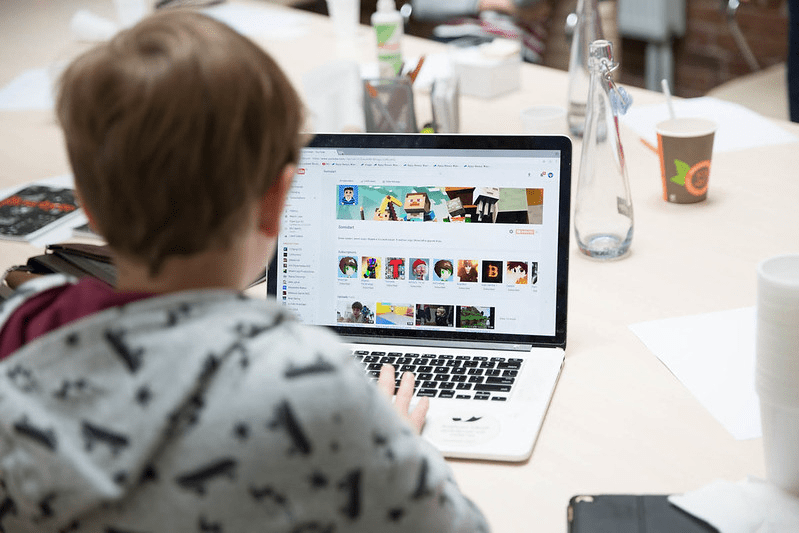
6. The ability to learn
The ability to learn is the ability to absorb new information quickly and effectively and put it into practice. Developing this ability helps a child not only to learn successfully in school, but also to apply what he or she has learned in life and later to advance successfully in his or her career.
To develop a child's ability to learn, it is recommended:
Create a pleasant learning environment. The child should feel comfortable and confident in his abilities. To this end, provide him with a comfortable workplace, good lighting, the right temperature and quiet.
Encourage independence. The child must learn to independently search for information, analyze it, and draw conclusions. To do this, you can give him information search tasks, show him how to use search engines, libraries and other sources of information.
Teach a systematic approach. The child should be able to plan his time and divide tasks into smaller subtasks to complete them more efficiently. It is also important to teach your child to take notes to help him remember information.
Encourage curiosity. Your child should be interested in new things and open to new knowledge. Encourage his curiosity, ask him questions, and stimulate his thinking.
Keep them motivated. Your child needs to understand why he needs to learn and learn new things. Keep him motivated, talk about how knowledge and skills can help him in the future, and let him know that his efforts are not in vain.
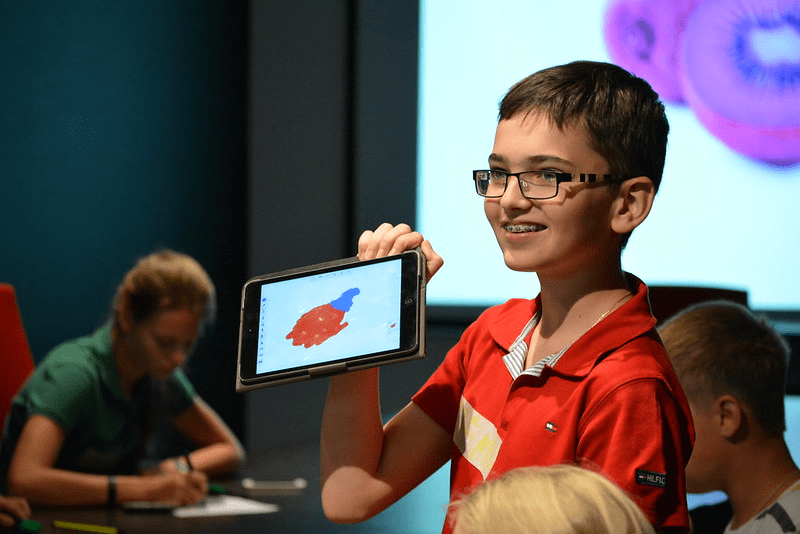
7. Self-confidence
Self-confidence is a key skill for success in professional and personal life.
Self-confidence is an important skill that can help your child succeed in many tasks and challenges in life.
Developing this skill will help your child express his or her talents and ideas and make good decisions.
The following methods can be recommended to develop this ability:
Encouragement and support. A child needs to feel that his or her successes and accomplishments are valued and appreciated. Parents and teachers can express their support and encouragement by acknowledging the child's efforts and accomplishments.
Gradual achievement of goals. Small successes and accomplishments can help a child feel more confident. Therefore, help your child set a goal and break it down into small steps. With each step achieved, the child feels confident and ready for the next step.
Skill development. Different skills and abilities can help a child feel more confident. For example, public speaking skills, social interaction skills, problem solving skills, etc. Parents and teachers can help a child develop these skills through various exercises and games.
Participation in various activities and events. Participating in activities and events such as sports, theater, or musical performances can help a child feel more confident and learn to perform in public.
- Teach positive thinking. Positive thinking can help your child cope with stress and difficulties, which can also boost his or her self-confidence. So teaching your child to think positively, find positive aspects of life, and look at things with optimism can boost his or her self-confidence.

In summary, developing these skills helps children become successful and confident people. Coddy offers a variety of courses that help develop all of these skills in children. You can view all of the courses on the Coddy Programming School website.





